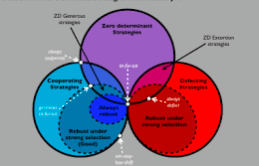
Game theory is a seriously studied logical field that mathematicians delve into. Interestingly, when you study how to develop successful negotiation tactics—Greenwich real estate negotiations included—you can look at them via game theory.
There is a problem, though. The further you get into the subject, the more it tends to become more and more abstract. It isn’t too long until you begin to wonder what the practical application is. Because Greenwich real estate negotiations are anything but academic exercises, I can’t recommend spending hours studying “The Prisoner’s Dilemma” or any of the other highly touted game theory games. And you don’t need to. In fact, you can start with one basic pre-condition necessary to develop a winning game plan. It is this precondition that has to exist in order to execute any winning game plan. In game theory, this is called the assumption.
So here it is:
The assumption that’s necessary for developing a successful negotiation strategy is that all the parties must be rational. They have to be trying to make decisions (game moves) that are intended to benefit themselves. In Greenwich real estate negotiations, that usually consists of paying or receiving the least or most money in the most favorable timeframe.
So the takeaway from game theory’s application to Greenwich real estate negotiations is both simple and useful in the real world:
1. Remain rational yourself. In the course of negotiations, if your thoughtful proposal isn’t accepted, don’t get mad—even if it’s maddening. Stay cool; acknowledge that you’ve considered the response, and develop the best counter that is in your interest.
2. Foster rationality in the other party. Even if they fly off the handle for what seems to be no reason, assume there IS a reason—but it may not be one that’s rational or even directly connected to the bargain under discussion. It can even be due to misconstrued communication. In the heat of the moment, it’s easy to forget that emotions can block self-interest—but even fiery emotions can be quelled when met with calm and reason.
Your realtor should be setting a tone of quiet confidence, competence, and ease around the transaction. The stronger the rational front is that you both extend, the greater the chances that the other party will fall in line with the same manner of thinking and operating.


